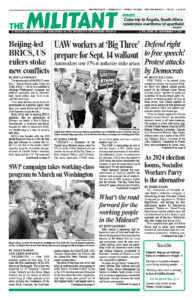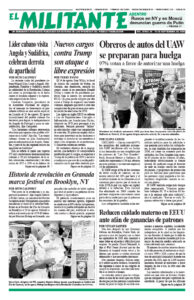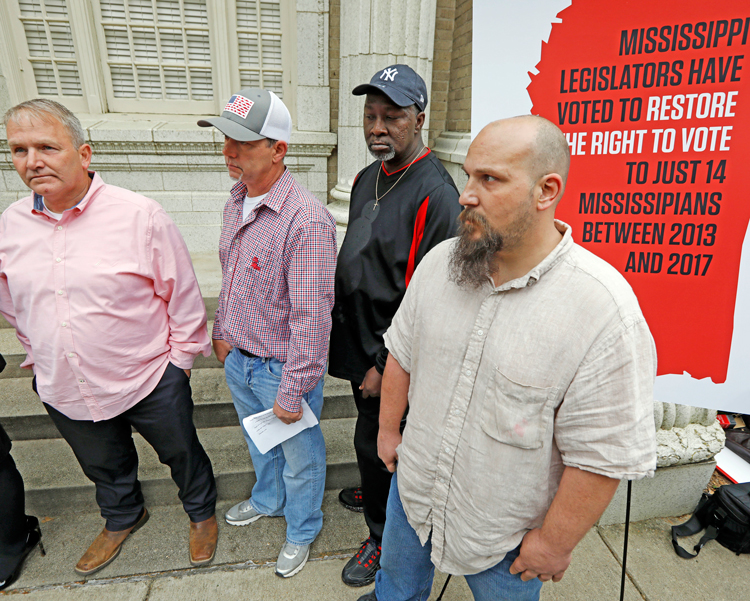In a victory for working people, the U.S. 5th Circuit Court of Appeals decided Aug. 4, by a 2-1 vote, to end Mississippi’s lifetime ban on the right of ex-felons to vote. The lawsuit under consideration was filed by six ex-felons in 2018. The court’s majority decided the ban is cruel and unusual punishment in violation of the U.S. Constitution’s Eighth Amendment, and that it “is at odds with society’s evolving standards of decency.”
“It is an especially cruel penalty as applied to those whom the justice system has already deemed to have completed all terms of their sentences,” the judges wrote.
“Should it stand,” the New York Times wrote Aug. 4, the decision “could have implications in 14 other states that confer lifetime bans on voting for at least some crimes.” Mississippi Attorney General Lynn Fitch is filing an appeal of the ruling to the full appeals court.
Up to now, workers imprisoned on felony charges who became released on probation or parole were barred from voting. The only way an ex-felon could get the right to vote was if it was restored by the Mississippi governor or through a bill passed for that particular individual by a two-thirds vote in both houses of the state legislature. Only 335 of the 166,494 persons who completed their sentences in Mississippi between 2000 and 2015 had their voting rights restored.
Over 218,000 felons were disenfranchised as of 2016, including some 127,000 African Americans, or nearly 16% of the Black electorate. The American Civil Liberties Union, Mississippi NAACP, Mississippi Center for Justice and others joined the call for restoring the right to vote to released felons.
Fight continues in Florida
On July 19 a federal lawsuit was filed against Florida Gov. Ron DeSantis and other elected officials by the Florida Rights Restoration Coalition and four individual ex-felons. They say that Florida has failed to carry out Amendment 4 to the state Constitution, passed in 2018, that restored the right to vote for 1.4 million people with prior felony convictions upon completion of their sentences, including prison, parole and probation. It excluded those convicted of murder or sex offenses.
The amendment passed with a 64.5% majority after supporters collected more than a million signatures to get it on the ballot. They organized demonstrations, concerts, action days and toured a bus around the state painted in big letters, “Let My People Vote.”
After the amendment passed, the Florida legislature intervened, adding a provision specifying that voting rights will only be restored after a felon pays any financial obligations, including fines, court costs and restitution.
But “many people who have been in prison aren’t aware of what they owe,” the Miami Herald editorial board wrote July 25.
DeSantis also created an “elections police” squad last year. It arrested 20 former prisoners who had received approved voter-registration cards and voted. These former felons, who had served time for either murder or a sex offense, now face five years in prison and a $5,000 fine just for voting.
Florida Rights Restoration Coalition Deputy Director Neil Volz told the Militant July 31 that the organization assisted many of the 20, and their cases are now at the heart of a legal challenge just filed against Florida officials.
The coalition is also demanding the state set up a central database where former prisoners can see the amount of money the justice system claims they owe. “We have already helped some 40,000 ‘returning citizens’ discover their financial obligations and also helped in paying some of their fines and fees,” Volz said.


